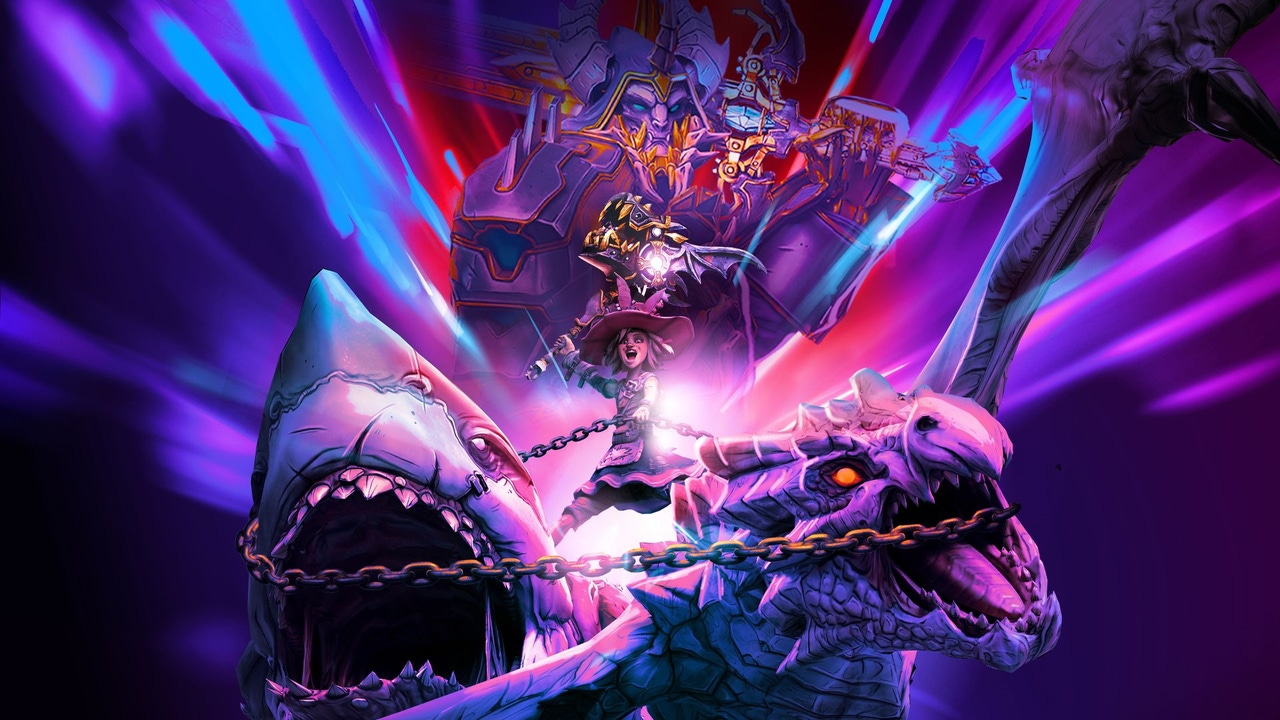Trending
Opinion: How will Project 2025 impact game developers?
The Heritage Foundation's manifesto for the possible next administration could do great harm to many, including large portions of the game development community.
.png?width=700&auto=webp&quality=80&disable=upscale)
Gearbox's creative director Matt Cox and senior producer Kayla Belmore opened up on how they put their health first while making Tiny Tina's Wonderlands and how that affected the larger studio.

Making video games is rarely (if ever) an easy affair, but for many in the triple-A games space, the COVID-19 pandemic suddenly upended how everything was made.
At GDC 2023, Gearbox Software’s creative director Matt Cox and senior producer Kayla Belmore opened up on how the pandemic affected the studio as it developed last year’s Tiny Tina’s Wonderlands. The most recent entry in the developer’s Borderlands franchise was largely made mid-pandemic, and they talked about how they kept spirits high in several respects during development.
During the pandemic, as Tiny Tina was underway, Belmore and Cox started to develop what they called “whole health advocacy.” As the latter put it, that means being proactive and “advocating for your team’s whole health, from mental to physical” to beyond. And he was frank in saying that it has to start with yourself.
“The frontal lobe of our brain actually shuts down if we are overstressed,” added Belmore. She stressed that creative people don’t do their best work during those times, and emphasized the importance of good decision making. “Advocating for your own mental health is so important. It’s actually science.”
They were quick to shut down any toxic mindset playing any part in their advocacy. “This isn’t some uwu stuff, this isn’t conveying all the ‘feel good’ positivity,” she continued. “This is just how we work.”

The pair were fairly open in disclosing how they both aimed to strike a better work/life balance while making Tiny Tina, and how that came to affect development on the game. As this was during the early days of the pandemic, part of that involved pursuing old hobbies and interests while maintaining safety. Belmore talked about how she took walks (while maintaining social distancing) and spent time with her pets, while Cox became wrapped up in Animal Crossing: New Horizons and Tiktok.
“I’m not checking anything in JIRA anymore, but at least I made a Tiktok,” he boasted.
While Cox and Belmore had their separate interests, there was one thing they both agreed on: in their respective slides, going to therapy was at the top of their lists. Both of them found that seeking a therapist, and being open about it, helped to destigmatize the idea of it around the studio at large.
“You probably have so many people on your team that have some sort of shame that’s learned from previous generations that it’s shameful to go seek help,” Cox said to the crowd. “It is not.”
Belmore believed that by leadership specifically reinforcing the idea of self-care and prioritizing mental health, that would pay it forward to the rest of the team. “If you’re someone that works your way up to leadership and has the respect of anyone on your team, they’re going to act like you, thinking that’s how you got to where you are. [...] If you believe there’s a better way, you need to walk the walk.”
Speaking as a producer specifically, Belmore talked about the importance of delegating roles to other members of her team. “I realized after reading some books on leadership [...] the feeling I was getting that I was bothering my own team was actually robbing them of the opportunity to take on new challenges and learn,” she admitted.
“It’s really important to make sure that you’re delegating for your own sanity and for the sake of your team. If you won’t do it for yourself, do it for the fact that it will help them.”

Establishing trust goes both ways, and they noted it was key for leadership to build that trust with their team. In the instances where clashes eventually happened, they mentioned using that friction as an opportunity to grow. “Conflict doesn’t have to be a fight,” affirmed Cox.
And if things get to the point where an apology becomes part of the equation? Belmore says to make sure that it passes “the Corpse Test: If a corpse can do it, it’s a bad apology.”
In the end, that focus on understanding each other emotionally and prioritizing self-care led to the Tiny Tina team ending development feeling proud of their work. Before reviews of the game came out, Belmore revealed that a consistent feeling amongst the Gearbox staff was pride in making the game. For her and Cox, having that particular sentiment was especially validating, since that isn’t always the case with games.
“People came out of this still liking each other,” she said. “That all came from working within limitations and also making sure we understood one another.”
Read more about:
FeaturesYou May Also Like